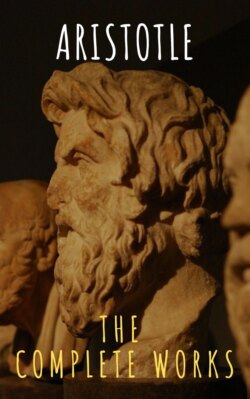Читать книгу Aristotle: The Complete Works - Aristotle - Страница 50
На сайте Литреса книга снята с продажи.
18
ОглавлениеBut if one premiss is assertoric, the other problematic, if the affirmative is assertoric and the negative problematic no syllogism will be possible, whether the premisses are universal or particular. The proof is the same as above, and by means of the same terms. But when the affirmative premiss is problematic, and the negative assertoric, we shall have a syllogism. Suppose A belongs to no B, but can belong to all C. If the negative proposition is converted, B will belong to no A. But ex hypothesi can belong to all C: so a syllogism is made, proving by means of the first figure that B may belong to no C. Similarly also if the minor premiss is negative. But if both premisses are negative, one being assertoric, the other problematic, nothing follows necessarily from these premisses as they stand, but if the problematic premiss is converted into its complementary affirmative a syllogism is formed to prove that B may belong to no C, as before: for we shall again have the first figure. But if both premisses are affirmative, no syllogism will be possible. This arrangement of terms is possible both when the relation is positive, e.g. health, animal, man, and when it is negative, e.g. health, horse, man.
The same will hold good if the syllogisms are particular. Whenever the affirmative proposition is assertoric, whether universal or particular, no syllogism is possible (this is proved similarly and by the same examples as above), but when the negative proposition is assertoric, a conclusion can be drawn by means of conversion, as before. Again if both the relations are negative, and the assertoric proposition is universal, although no conclusion follows from the actual premisses, a syllogism can be obtained by converting the problematic premiss into its complementary affirmative as before. But if the negative proposition is assertoric, but particular, no syllogism is possible, whether the other premiss is affirmative or negative. Nor can a conclusion be drawn when both premisses are indefinite, whether affirmative or negative, or particular. The proof is the same and by the same terms.
